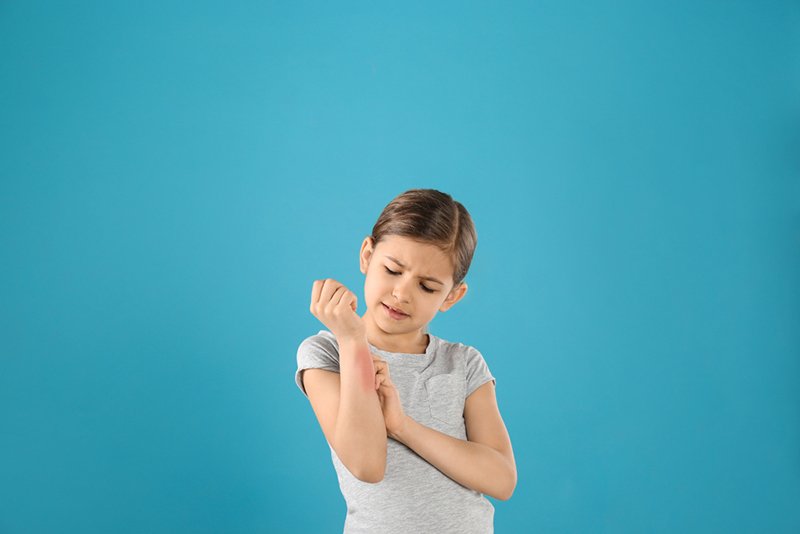Hives in children is a sure-fire way to make any parent panic – but how do you spot the signs, and what do you do about it?
Most kids are almost certainly going to have their fair share of lumps, bumps and scratches along the way to adulthood, but some cause more concern than others. Referred to as “urticaria” in the medical world, hives can resemble mosquito bites, and they are generally a sign of an allergic reaction.
What Are Hives?
Hives in children are generally a common reaction to an underlying virus, or something that they have encountered during their daily adventures – food, an insect or animal and even some medication. Essentially, hives is a skin condition that happens when the immune system is triggered to go into overdrive, which chemicals are released that cause leaky blood vessels. This causes the swelling, redness and itch that we associate with hives in children.
One in five kids experience hives during their childhood, however it is more likely to affect “atopic” kids with conditions like hay fever, eczema or asthma.
A “patch” can appear suddenly within hours or even minutes and can pop up anywhere on the body including the face, tongue, ears, lips or throat. In extreme cases they can develop in the lungs, and cause breathing difficulties.
Symptoms and signs of hives to watch out for include:
- Raises, red patches of skin that look like welts (called wheals)
- Itching and burning sensation
- Can resemble a mosquito bite
- A “patch” may appear in clusters, one small section or as large as a dinner plate, and can even spread throughout the whole body
Although hives can even be a by-product of the common cold, they can also be a symptom of something more serious like anaphylaxis. If your child has difficulty breathing, a wheezy cough, swelling or tightness in the throat or tongue along with becoming pale or floppy – call an ambulance immediately.
How To Treat Hives?
Many bouts of hives can actually be over and done with before you get a chance to get them treated – a case could last for a few minutes, or a few hours. However, if your kids are itching like crazy and are struggling to sleep, it might be worth contacting a doctor for further treatment.
Sunshine, heat and hot showers are known to aggravate hives in children. Instead, try a solution that cools the itch or burn like a cold compress or a bath.
If the hives aren’t going away anytime soon, it might be time to consider a non-sedative antihistamine medication, cream or lotion. While they won’t make the existing hives disappear, they will generally prevent any new outbreaks and prevent the existing hives from getting worse.
To avoid future outbreaks of hives, prevention is often key. If your child hasn’t had an anaphylactic episode, they may still have underlying allergies that can instigate a hives outbreak. If hives become a regular visitor to your household, it may be worth undertaking an allergy test with your GP to eliminate possible triggers.
At 13 Doctor, we’re available seven days a week – having access to a medical professional after hours is something that every parent should be able to receive, if and when required.
